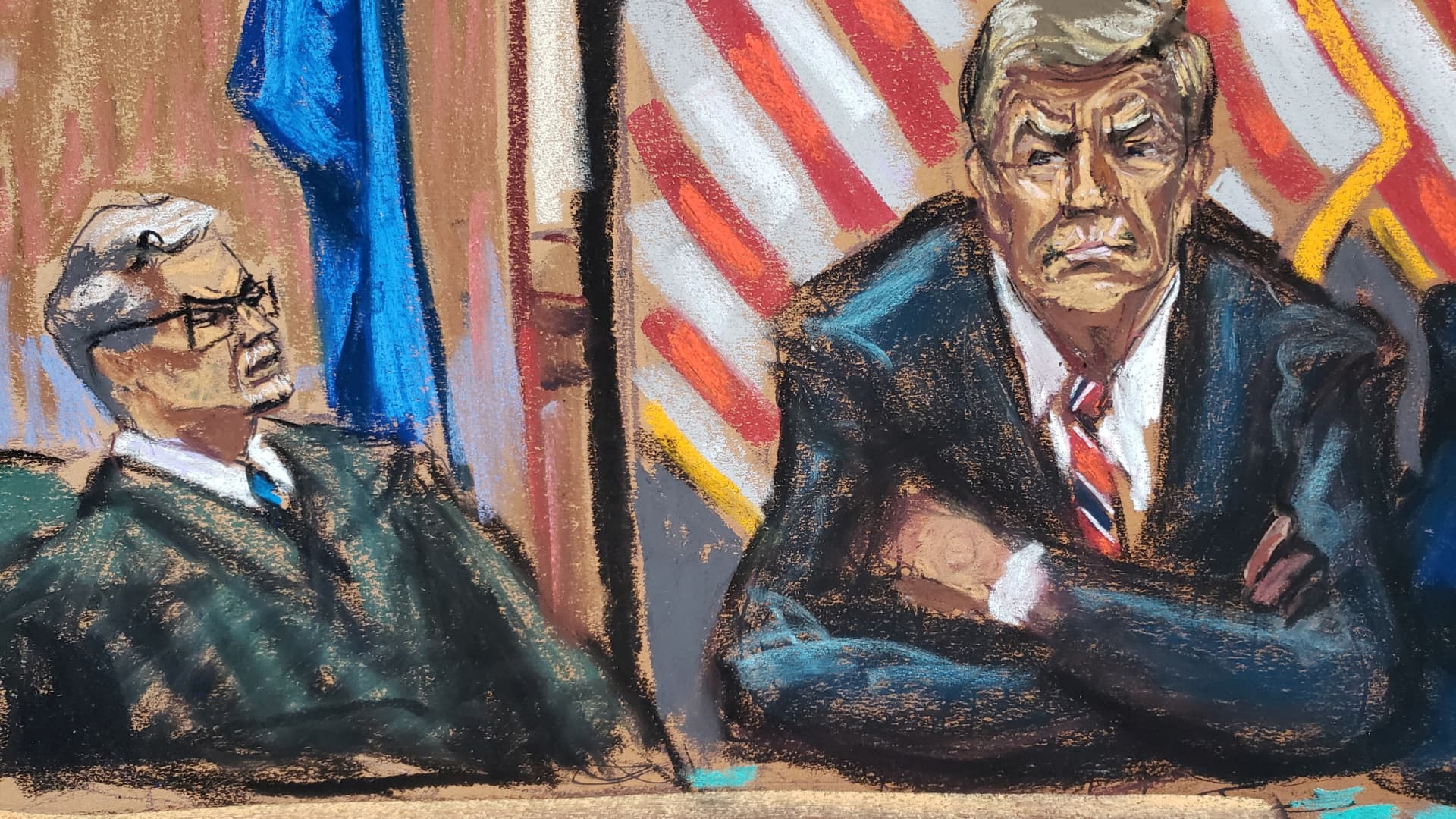In this courtroom sketch, former U.S. president Donald Trump appears by video conferencing before Judge Juan Merchan during a hearing before his trial over charges that he falsified business records to conceal money paid to silence porn star Stormy Daniels in 2016, in Manhattan state court in New York City, May 23, 2023.
Jane Rosenberg | Reuters
A New York judge on Tuesday delayed his ruling on whether to toss guilty verdicts against President-elect Donald Trump in his criminal hush money case, or to move toward sentencing in late November.
The one-week postponement was announced two days after the Manhattan District Attorney’s Office asked the judge for time to consider how Trump’s electoral win affects the case.
Manhattan Supreme Court Judge Juan Merchan, who was set to issue his ruling Tuesday, is now scheduled to determine if the case should be dismissed on Nov. 19.
Trump was set to be sentenced Nov. 26 on 34 counts of falsifying business records related to a hush money payment made by his former lawyer Michael Cohen to porn star Stormy Daniels shortly before the 2016 presidential election.
Trump’s lawyers asked to dismiss the case and vacate the jury verdict in July, after the U.S. Supreme Court granted presumptive immunity to former presidents for all official acts in office.
DA Alvin Bragg had urged Merchan to reject that request, arguing that the high court’s ruling had no bearing on Trump’s conviction in the hush money case.
On Friday — three days after Trump defeated Vice President Kamala Harris in the 2024 presidential race — defense lawyers asked Bragg’s office to agree to pause all proceedings, seeking time to review and consider arguments based on the election results.
The DA’s office consented.
“The People agree that these are unprecedented circumstances,” prosecutor Matthew Colangelo wrote Sunday in an email to Merchan that was shared in a public court filing Tuesday morning.
The defense lawyers’ arguments “require careful consideration to ensure that any further steps in this proceeding appropriately balance the competing interests of (1) a jury verdict of guilt following trial that has the presumption of regularity; and (2) the Office of the President,” Colangelo wrote.
Read the original article here



